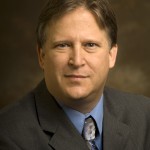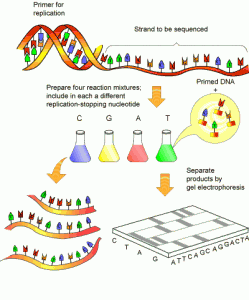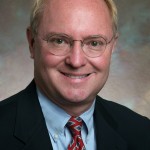Emory Eye Center doctors Emily Graubart, MD, assistant professor of ophthalmology, and Paul Pruett, MD, assistant professor of ophthalmology, Emory School of Medicine, say people often have misinformation about their eyes. They answer questions below to dispel myths about eye disease and eye care. Start the new year with knowledge about your eyes:

Paul Pruett, MD
How often does an adult need to see an eye doctor?
“It depends on your age,†says Pruett, an expert in glaucoma. “In your 20s, 30s and 40s, about every two years is sufficient. If you have certain medical conditions, it may be necessary to be seen more often. For example, patients with diabetes should have their eyes examined every year, at the least. Many eye diseases can be asymptomatic, and early detection can prevent vision loss. This is especially true for glaucoma. Half of all patients with glaucoma do not know they have the disease.â€
Is my computer work damaging my eyes?
“No, however, staring at a computer screen means you may not blink often and your eyes may become dry,” says Graubart, a comprehensive ophthalmologist and cataract surgeon. “Blinking more frequently while working on the computer, as well as using preservative-free artificial tears will help to reduce the dry-eye symptoms associated with long-term computer use.â€

Emily Graubart, MD
Do certain foods or vitamins help the eyes?
“While there are a lot of claims regarding vitamins and eye health, there are only a few conditions where studies have proven a benefit,†says Pruett. “In age-related macular degeneration, for instance, there is a certain formulation of vitamins and minerals that has been proven to reduce the rate of vision loss in certain populations of these patients. Despite these medicines being over-the-counter, it is important to discuss with your doctor whether vitamin therapy is right for you as there may be potential interactions with other medicines or conditions. In general, a well-balanced diet with plenty of fruits and vegetables is the way to go, not only for eye health but also for your overall health.â€
Why does reading get more difficult with age?
“We begin to lose our ability to focus up close, which is called presbyopia, between our late thirties and early forties,†says Graubart. “The natural lenses of our eyes become thicker and harder, and the muscles controlling the lens shape weaken making it more difficult to see up close. If you have not needed glasses before, you will likely do well with over-the-counter reading glasses. These glasses cannot damage your eyes. However, the American Academy of Ophthalmology recommends a comprehensive eye exam at age 40 to screen for diseases of the eye. At this visit, your ophthalmologist can tell you what prescription would work best for your eyes.â€
Does reading in dim light or reading very small print damage your eyes?
“No. You may experience eye strain with both of these activities, but there will be no permanent damage to your eyes,†says Graubart. “More light helps to improve contrast and thus, allows you to read with greater ease.â€
Are eye problems genetic?
“Not always,†says Pruett. “Although there is a higher risk for certain diseases, such as glaucoma that run in families, it does not mean you as a child will get every eye disease or disorder that your parents may have had. Problems that come purely with aging, such as cataracts, have no relation to parents. The important thing to remember is that if you have a family history of eye disease, you need to have thorough screenings at appropriate times in your life.â€
Do eye exercises help vision?
“In children with certain convergence issues (crossed eyes), the exercises prescribed for them do help,†says Pruett. “However, in adults, eye exercises have shown no improvement in vision according to studies. Methods that promise to get rid of glasses by eye exercises are not viable.â€
Does my toddler need an eye exam?
“Your child’s eyes are examined as a newborn by your pediatrician, and then again between ages six months and one year.“ says Graubart. “Your child’s vision should be tested by your pediatrician or an ophthalmologist at age three to three and one-half, earlier if your child can recognize images on the pediatric eye chart. If your child has a family history of eye disease, if you notice your child’s eye wandering, or if you have any concerns regarding their vision, they should be screened regularly and quickly referred to an ophthalmologist if there are any concerns.â€
Learn more about the eye. Read about Emory Eye Center in Emory Eye magazine.








![queen_bee_04~s600x600[1]](http://www.emoryhealthsciblog.com/wp-content/uploads/2010/01/queen_bee_04s600x6001-150x150.jpg)




